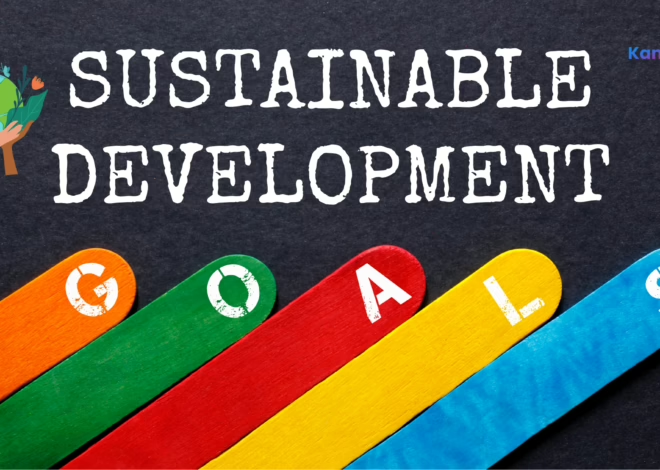
Emotional Intelligence in Community Management: 5 Intriguing Insights for Stronger Connections
Table of Contents
Smart Summary: Here’s What This Blog on Emotional Intelligence in Community Management Will Explore:
▶ What is Emotional Intelligence and Why It Matters
Emotional intelligence is the ability to understand and manage your own emotions while empathizing with others, essential for effective community management.
▶ The Role of Emotional Intelligence in Community Success
Emotional intelligence helps leaders foster trust, navigate challenges, and create positive environments where members feel valued and engaged.
▶ Insight 1: Enhancing Communication Through Emotional Awareness
Managers with emotional intelligence communicate empathetically, reducing misunderstandings and encouraging open, respectful dialogue.
▶ Insight 2: Using Emotional Awareness to Resolve Conflicts
Recognizing emotional cues allows managers to mediate disputes calmly, turning conflicts into opportunities for growth.
▶ Insight 3: Emotional Intelligence Builds Trust and Safety
Empathic leadership creates psychological safety, encouraging honest member participation and deeper connections.
▶ Insight 4: Emotional Intelligence Fosters Inclusion
By understanding diverse emotional needs, managers create welcoming, respectful spaces for all members.
▶ Insight 5: Emotional Intelligence Supports Leadership Development
Emotionally intelligent leaders inspire loyalty, manage stress effectively, and sustain healthy community cultures.
▶ Additional Insight: The Power of Emotional Intelligence in Virtual Onboarding
Emotional intelligence during onboarding helps new members feel welcomed and confident, increasing retention and engagement from day one.
▶ Cultivating Emotional Resilience in Community Managers
Building emotional resilience allows managers to stay calm and compassionate during challenges, preventing burnout and modeling steady leadership.
▶ Harnessing Emotional Intelligence to Drive Member Empowerment
Empowering members through emotional skill-building fosters empathy, collaboration, and stronger community bonds.
▶ How Kannect Supports Emotional Intelligence in Community Management
Kannect provides tools like sentiment analysis and real-time messaging to help managers engage empathetically and respond thoughtfully.
▶ Leveraging Emotional Analytics for Proactive Community Health
Using emotional data, managers can anticipate issues early and take actions to improve member satisfaction and retention.
▶ Why Emotional Intelligence Is a Pillar of Effective Community Management
Emotional intelligence strengthens communication, trust, and engagement; key to thriving, resilient communities.
▶ Kannect: Empowering Emotionally Intelligent Managers
Kannect equips community leaders with tools to nurture empathy, resolve conflicts, and build lasting member relationships.
▶ Frequently Asked Questions: All About Emotional Intelligence in Community Management
Clear answers help leaders understand and apply emotional intelligence to create supportive, engaged communities.
Let’s Dive In!
What is Emotional Intelligence and Why It Matters
Emotional intelligence is the ability to recognize, understand, and manage one’s own emotions, while also empathizing with the emotions of others. This encompasses self-awareness, self-regulation, social awareness, and relationship management. In community management, emotional intelligence plays a vital role in creating environments where members feel truly valued, heard, and supported. By tapping into these emotional dynamics, community managers can foster deeper connections among members, encourage compassionate interactions, and build a culture of mutual respect. This emotional awareness helps prevent conflicts from escalating and nurtures a sense of belonging, which is fundamental to sustaining vibrant and engaged communities.
The Role of Emotional Intelligence in Community Success
A community manager who harnesses emotional intelligence can navigate challenges with grace and sensitivity, turning potentially divisive situations into opportunities for growth and understanding. These managers encourage meaningful conversations by recognizing underlying emotional currents and responding with empathy rather than reaction. Such skills are essential not only for conflict resolution but also for building trust and loyalty among members. By fostering a positive community atmosphere where emotions are acknowledged and managed skillfully, emotionally intelligent leadership drives lasting engagement, encourages collaboration, and ultimately supports the long-term success and resilience of the community.
Insight 1: Enhancing Communication Through Emotional Awareness
Clear and empathetic communication plays a vital role in reducing misunderstandings and strengthening relationships within a community. Managers who are sensitive to emotional dynamics actively listen to members’ concerns and feelings, responding with thoughtfulness and compassion. This fosters an environment where openness and trust can flourish, encouraging members to share honestly without fear of judgment. Such emotionally aware communication helps clarify intentions and resolve conflicts before they escalate, creating a more harmonious community atmosphere.
For example, imagine a community member expressing frustration about delays in event updates. An emotionally aware manager would acknowledge the member’s feelings, validate their concerns, and calmly provide transparent information about the situation. This response not only addresses the issue but also reassures the member that their voice is heard and valued, strengthening their connection to the community.
By fostering this kind of mindful engagement, community leaders cultivate an environment of respect and understanding that supports deeper, more resilient member relationships.
Insight 2: Using Emotional Awareness to Resolve Conflicts
Being attuned to members’ emotional triggers enables community managers to navigate disputes with calmness and fairness. By recognizing the underlying feelings driving disagreements such as frustration, misunderstanding, or hurt, leaders can address root causes rather than just symptoms. This mindful approach fosters open dialogue and encourages parties to express their perspectives respectfully, turning conflicts into valuable opportunities for learning and development. When handled with empathy and impartiality, disagreements become moments of growth that strengthen relationships and preserve overall community harmony.
For example, consider a situation where two members clash over differing opinions on content standards. A manager who senses rising tension might step in to facilitate a respectful conversation, acknowledging each member’s emotions and guiding them toward common ground. This intervention not only resolves the immediate issue but also models constructive conflict management, encouraging a culture of understanding and collaboration.
By applying emotional insight in conflict situations, community leaders help maintain a safe and supportive space where all voices can coexist productively.
Insight 3: Emotional Intelligence Builds Trust and Safety
When community leaders demonstrate genuine empathy, they create an environment of psychological safety where members feel comfortable expressing their true thoughts and feelings without fear of judgment or reprisal. This sense of safety encourages authentic engagement, as individuals are more willing to participate openly and share diverse perspectives. Empathetic leadership nurtures trust, helping to build strong emotional connections that deepen member commitment and foster a supportive community culture.
For example, imagine a member sharing a personal struggle related to feeling overwhelmed by community expectations. A leader who responds with compassion and understanding, acknowledging the member’s feelings and offering reassurance, helps create a welcoming space that validates vulnerability. This response not only strengthens the individual’s trust in the community but also signals to others that the environment is safe for honest dialogue and authentic connection.
By cultivating empathetic interactions, community managers lay the foundation for a thriving, engaged community where members feel respected and valued.
Insight 4: Emotional Intelligence Fosters Inclusion
By appreciating emotional and cultural diversity, community managers cultivate welcoming spaces where every member feels respected and truly heard. Recognizing that people bring a wide range of experiences, values, and emotional expressions helps leaders tailor their approach to meet diverse needs equitably. This thoughtful awareness promotes a sense of belonging and ensures that no voice is overlooked or marginalized. Inclusive leadership encourages members to contribute confidently, enriching the community with varied perspectives and strengthening social cohesion.
For example, imagine a manager who notices that some members from different cultural backgrounds communicate more indirectly or express emotions differently. By valuing these distinctions rather than judging them, the leader adapts communication styles and facilitates discussions mindful of these nuances. This creates an environment where all members feel comfortable participating, breaking down barriers that might otherwise silence minority voices.
Through this sensitivity to emotional and cultural differences, community leaders help build more inclusive, vibrant, and resilient communities where diversity is embraced as a strength.
Insight 5: Emotional Intelligence Supports Leadership Development
Leaders who possess strong emotional awareness inspire greater commitment by connecting authentically with their community members. They recognize their own stress signals and practice effective self-management, which allows them to remain composed and responsive during challenging situations. This emotional resilience sets a positive tone for the entire community, fostering a supportive and optimistic culture that encourages collaboration and innovation. By modeling empathy and thoughtful communication, such leaders cultivate trust, motivate participation, and nurture emerging leaders, ensuring the community’s long-term vitality and success.
For example, consider a community manager facing a sudden surge of member complaints during a platform update. Rather than reacting defensively, an emotionally aware leader acknowledges the frustration, communicates transparently about the issues, and provides timely updates on resolutions. This approach not only defuses tension but also demonstrates accountability and care, inspiring members to remain engaged and cooperative. Furthermore, this leader mentors community volunteers, teaching them how to navigate emotional challenges with similar calm and empathy, thereby strengthening the leadership pipeline.
Through this mindful approach to leadership development, communities build a culture of empathy-driven guidance that supports lasting growth and resilience.
Additional Insight: The Power of Emotional Intelligence in Virtual Onboarding
Effective onboarding is critical in setting the tone for long-term engagement within any online community. Applying emotional intelligence during virtual onboarding enables community managers to establish a personal connection with new members despite the physical distance and digital barriers. By recognizing the importance of first impressions, addressing common anxieties, and customizing welcome experiences through empathetic and thoughtful communication, managers create an early sense of belonging and inclusion.
Platforms like Kannect play a vital role in supporting this approach by enabling managers to automate warm, personalized greetings that make newcomers feel seen and appreciated from the start. The platform’s features also make it easy to provide clear, accessible resources tailored to new members’ needs and to monitor early activity signals that indicate enthusiasm or hesitation. This proactive, emotionally intelligent onboarding process not only helps reduce early drop-off rates but also encourages new members to engage confidently and contribute meaningfully from day one.
For example, a new member joining a professional association might receive an automated yet personalized welcome message through Kannect, paired with a quick start guide and invitations to introductory events or mentorship opportunities. If the platform detects low early interaction, community managers can follow up individually with supportive messages, addressing potential concerns and encouraging participation. This personalized care helps newcomers feel genuinely valued, turning initial curiosity into lasting commitment.
By integrating emotional intelligence into onboarding, community managers transform the newcomer experience, laying the foundation for a vibrant, engaged, and thriving community that everyone contributes to and benefits from.
Cultivating Emotional Resilience in Community Managers
Managing an active community can be highly rewarding but also emotionally demanding and stressful. Developing emotional resilience, an essential aspect of emotional intelligence, helps community managers stay calm, focused, and effective during challenging situations, such as conflicts or unexpected crises. This resilience not only supports their own well-being but also enables them to lead with compassion and patience, fostering a positive environment for members.
Practical strategies for building emotional resilience include mindfulness practices such as meditation or deep breathing exercises that reduce stress and increase emotional regulation. Setting healthy boundaries, like designating specific work hours or knowing when to delegate, prevents burnout and maintains balance. Reflective journaling allows managers to process experiences, gain perspective, and identify areas for growth.
Additionally, tools like Kannect play a crucial role in lightening emotional workloads by simplifying moderation and streamlining communication workflows. Automated filters, pre-set responses, and clear escalation paths help managers handle issues efficiently without becoming overwhelmed.
For example, a community manager dealing with a sudden flood of angry messages during a major platform glitch might feel overwhelmed initially. However, by practicing mindfulness to stay grounded, setting clear communication boundaries with members about update schedules, and relying on Kannect’s moderation features, the manager manages the situation calmly. This composed response reassures members and sets a steady tone for the community, reinforcing trust and stability.
Resilient managers model emotional strength and intentional leadership, creating a steady, trusting space where members feel safe and supported, even amid challenges.
Harnessing Emotional Intelligence to Drive Member Empowerment
Effective community management goes beyond simply overseeing interactions; it also involves inspiring members to develop emotionally and socially. By fostering programs focused on skills like active listening, empathy, and peer mentorship, community leaders encourage emotional intelligence growth among members. These initiatives enable people to better understand their own emotions and those of others, creating a ripple effect of kindness, support, and deeper connections throughout the community.
Kannect’s robust communication and event management features serve as vital tools to support these efforts. For example, community managers can organize workshops or discussion groups that focus on building emotional intelligence skills, using Kannect to streamline event planning, RSVPs, and follow-up conversations. The platform’s chat and messaging capabilities also facilitate ongoing peer mentorship and empathetic dialogue, nurturing a culture where members actively support one another.
For instance, in a volunteer community, managers might launch a peer mentorship program where seasoned members guide newcomers in navigating challenges, using active listening and empathy techniques taught during online sessions. With Kannect’s tools, these mentorship relationships grow naturally, fostering trust and collaboration that enrich the community’s overall health and effectiveness.
By helping members cultivate their emotional intelligence, community management fosters cycles of empathy that strengthen relationships, encourage cooperation, and create an engaging, supportive environment for all.
How Kannect Supports Emotional Intelligence in Community Management
Kannect’s platform is thoughtfully designed to support community managers in applying emotional intelligence to their daily interactions. Its real-time chatting feature facilitates immediate and fluid conversations, allowing managers to engage dynamically with members, pick up on emotional cues, and respond promptly to needs or concerns.
Advanced sentiment analysis tools provide insights into the overall emotional tone of conversations, helping leaders identify rising tensions, celebrate positive moods, and tailor their responses to suit the community’s atmosphere. This proactive understanding allows managers to address issues before they escalate and to nurture goodwill throughout the platform.
Moderation tools empower managers to maintain a respectful and safe environment by filtering inappropriate content and guiding discussions constructively, all while balancing firm oversight with empathy. Private messaging options enable one-on-one communication, offering a confidential space to support members personally and respond to sensitive situations with care and discretion.
By integrating these powerful features, Kannect equips community managers to lead with empathy and emotional insight, fostering authentic connections and nurturing a supportive, engaged community culture.
what emotional intelligence is, emotional intelligence how, emotional intelligence eq, intelligence emotional, emotional intelligence test
Leveraging Emotional Analytics for Proactive Community Health
By analyzing emotional data patterns, sentiment tracking, and member feedback insights, community managers gain valuable tools for maintaining a healthy and engaged community. These analytics help identify early signs of member dissatisfaction, disengagement, or emerging conflicts before they escalate into larger problems. Proactive awareness enables timely, targeted interventions that address concerns, resolve issues, and restore trust, ultimately improving overall satisfaction and boosting member retention.
Platforms like Kannect make this process more efficient by integrating sentiment analysis directly into their communication tools. For example, if a community’s chat forums show a sudden increase in negative sentiment around a specific topic such as concerns about a new policy, managers can quickly recognize the issue and initiate open dialogues or Q&A sessions to address member worries transparently. This timely response not only calms tensions but also reinforces members’ sense that their voices matter.
For instance, a community centered on environmental advocacy might notice dropping participation in recent discussions coupled with rising frustration detected through emotional analytics tools. The community manager uses Kannect’s reporting to identify core pain points and organizes a virtual town hall to gather feedback and co-create solutions. This approach revitalizes engagement by making members feel heard and valued, demonstrating the power of leveraging emotional data for sustained community health.
Why Emotional Intelligence Is a Pillar of Effective Community Management
Emotional intelligence is fundamental to successful community management because it strengthens the core elements that make communities vibrant and engaged: clear communication, mutual trust, and a sense of safety. When community managers possess emotional awareness and empathy, they are better equipped to understand members’ needs and feelings, respond appropriately to challenges, and foster positive interactions. This deep connection helps create an environment where members feel valued and motivated to participate actively, ultimately leading to stronger, more resilient communities.
Kannect: Empowering Emotionally Intelligent Managers
Kannect provides community managers with intelligent, user-friendly tools designed to enhance emotional intelligence in everyday community management. From real-time chat and sentiment analysis to conflict resolution and personalized member outreach, Kannect equips leaders to nurture empathy, resolve disputes calmly, and build genuine relationships with members. For example, a community manager using Kannect might identify rising frustration in a discussion through sentiment analytics, then intervene with a thoughtful message to acknowledge concerns and invite constructive dialogue. This empathetic approach, supported by Kannect’s technology, not only defuses tension but also reinforces member trust and loyalty.
By blending emotional intelligence with powerful management tools, Kannect helps community leaders cultivate supportive and thriving online spaces, ensuring sustainable success and meaningful engagement.
Ready to enhance your community engagement with Kannect’s mobile first design?
Discover how Kannect helps you create seamless, accessible experiences that keep members connected everywhere they go. Whether you’re organizing events, sharing updates, or fostering collaboration, Kannect’s platform makes it effortless and enjoyable.
💡 Create your free Kannect account today or book a live demo to explore features designed for real-world community needs!
✔️ Follow Kannect on LinkedIn and Socials (Links below) for expert guidance, proven engagement strategies, and inspiring nonprofit success stories.
✔️ Subscribe to The Community Engagement Playbook – our weekly newsletter packed with actionable tips to nurture your nonprofit community with authenticity and heart.
Take the next step: toward building a mobile-first, highly engaged community. Connect authentically, grow sustainably, and make every interaction count with Kannect!
Try Kannect today

Frequently Asked Questions: All About Emotional Intelligence in Community Management
Q1: How does Kannect facilitate emotional intelligence in community management?
Kannect offers sentiment tracking, real-time messaging, and moderation features to help managers respond with empathy.
Q2: Can Kannect assist in resolving conflicts?
Yes, private messaging and moderation support keep community discussions respectful and constructive.
Q3: What is emotional intelligence in community management?
It is understanding and managing emotions to improve communication and relationships within a community.
Q4: How does emotional intelligence improve member engagement?
By building trust and safety, members feel valued and participate more openly.
Q5: How can community managers build emotional resilience?
Through mindfulness, reflection, and using tools like Kannect to streamline workflows and reduce stress.
Q6: How does empowering members with emotional intelligence benefit a community?
It fosters empathy, strengthens connections, and encourages collaborative problem-solving.



